Inaugural Dental Hygiene Symposium offers hands-on training in latest technology4 min read
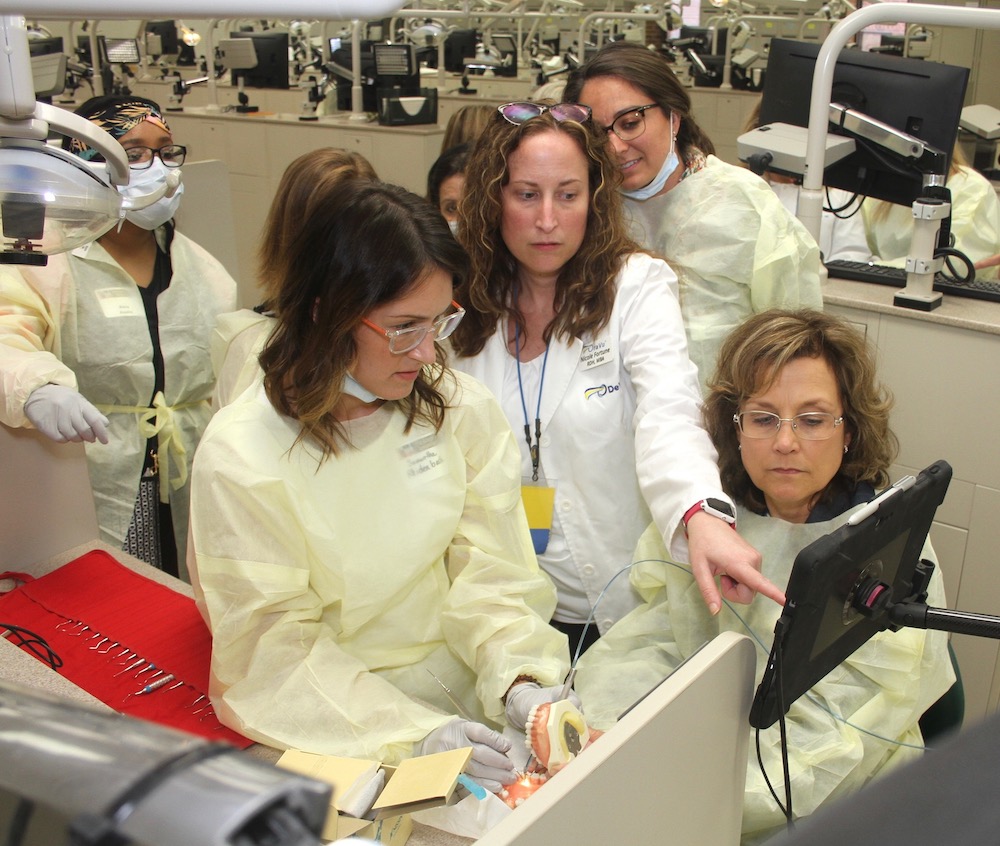
Ann Arbor, Mich., Aug. 13, 2019 – Hands-on demonstrations of some of the latest technology for dental hygienists were among the Continuing Education presentations at the 2019 Dental Hygiene Symposium held at the School of Dentistry earlier this month.
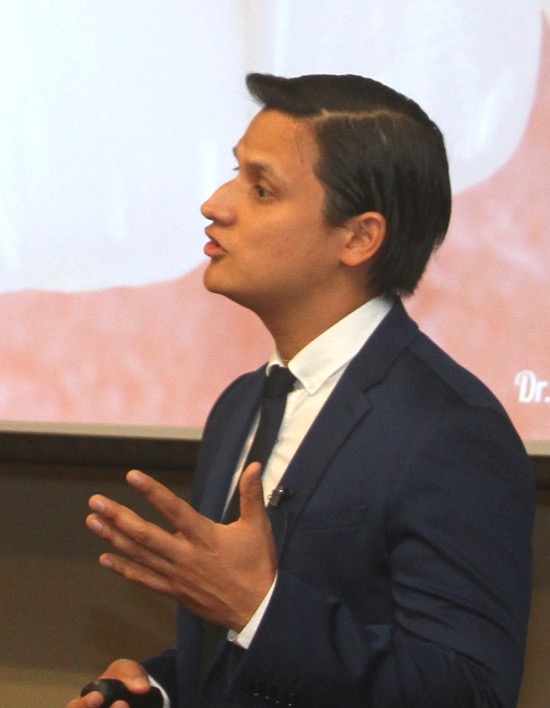
The symposium, in its first year, drew about 70 dental hygienists and dentists from around Michigan to hear nationally recognized speakers discuss cutting-edge, evidence-based treatment for non-surgical advanced periodontal and implant diseases.
Lead organizer Danielle Furgeson, Clinical Assistant Professor and Director of the Dental Hygiene Graduate Program, said the new symposium is especially important given the rapidly increasing use of dental implants. “It’s critical that dental hygienists be knowledgeable in the prevention, detection, treatment and management of peri-implant diseases,” Furgeson said. “Practices must be able to provide the most effective, individualized treatment for their patients.”
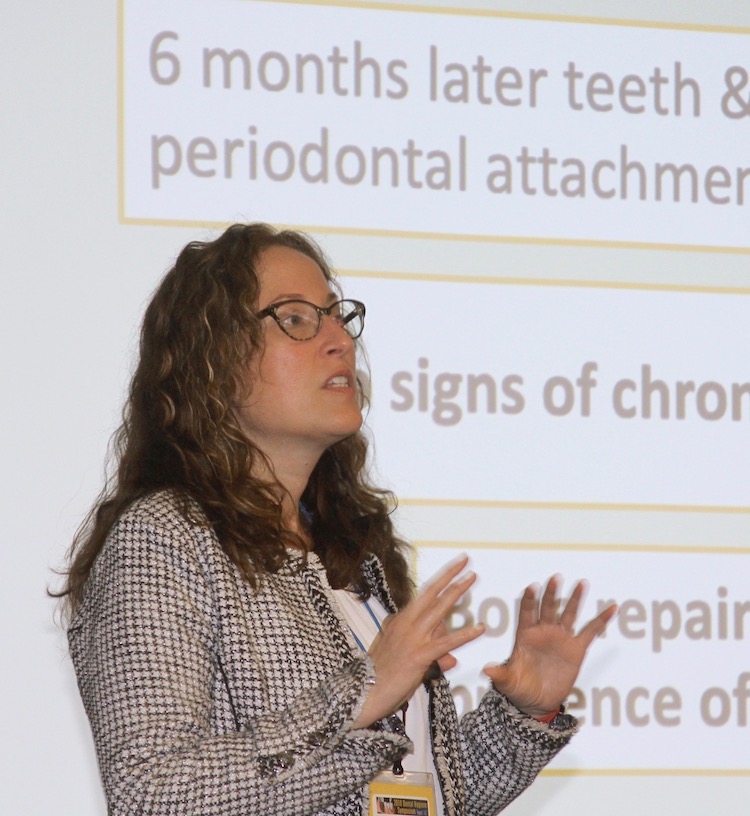
The event began with a poster session Thursday evening. Friday morning speakers were Dr. Carlos Garaicoa-Pazmiño, Assistant Professor at the Oregon Health and Science University, who provided case studies of peri-implant diseases and their treatment; Nicole Fortune, a registered dental hygienist from Vermont, who discussed utilizing dental endoscopes and air polishing; and Angie Wallace, a registered dental hygienist from Oklahoma who is affiliated with the Academy of Laser Dentistry and certified is the use of diode lasers
The afternoon sessions allowed symposium participants to practice the use of diode lasers on pig cadaver jaws. The lasers are used to treat pockets of infection in the tissue around teeth, as well as treating mouth ulcers and lesions, such as canker sores and cold sores. Because the use of lasers is carefully regulated, Wallace described various safety procedures. For example, anyone in the room where they are being used must wear protective eyewear.
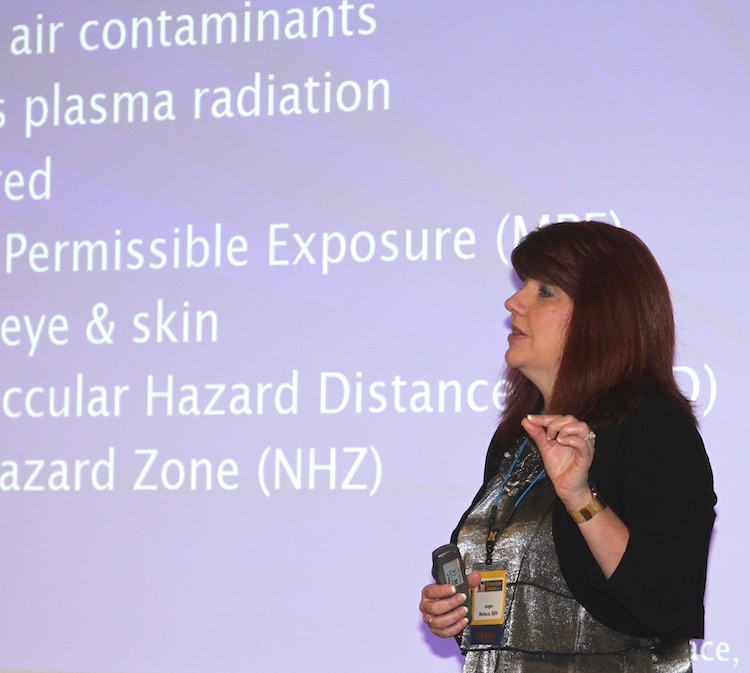
Also during the afternoon session, participants were able to practice with dental endoscopes, a type of fiber optic video camera that uses up to 100x magnification. It allow treatment providers to see the root surface and tissues below the gumline. By having a better view of difficult-to-reach areas of the mouth, hygienists can more effectively treat periodontal disease.
“The Division of Dental Hygiene is pleased with the success of the inaugural symposium,” Furgeson said. “Hygienists and dentists from across Michigan hopefully left feeling inspired about preventing, treating and maintaining peri-implant diseases. It allowed them to see the benefit of implementing these effective procedures into their non-surgical care protocols.”
The division, in the Department of Periodontics and Oral Medicine, plans to hold the symposium every other year, alternating with the department’s long-standing biennial Ramfjord Symposium.
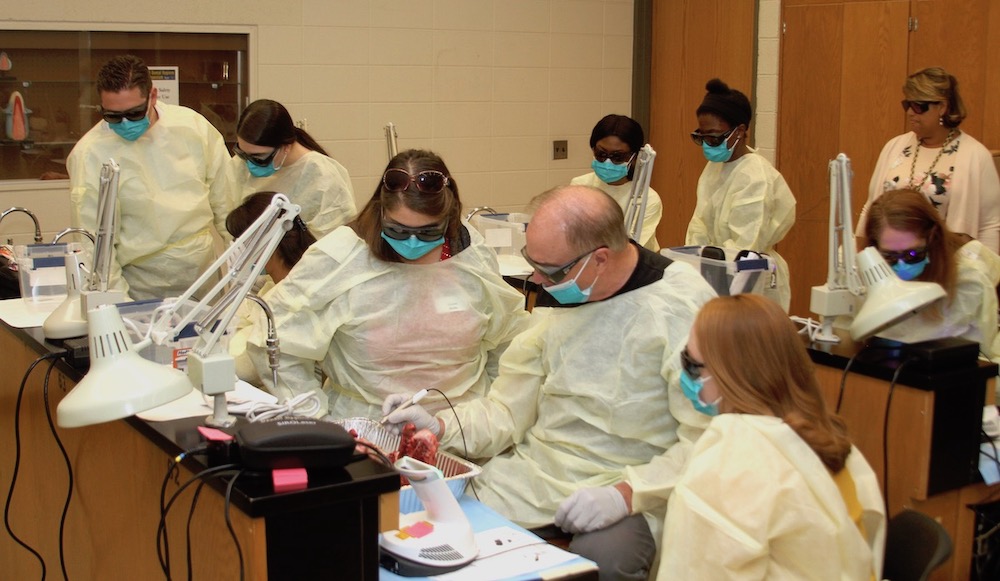
###
The University of Michigan School of Dentistry is one of the nation’s leading dental schools engaged in oral health care education, research, patient care and community service. General dental care clinics and specialty clinics providing advanced treatment enable the school to offer dental services and programs to patients throughout Michigan. Classroom and clinic instruction prepare future dentists, dental specialists and dental hygienists for practice in private offices, hospitals, academia and public agencies. Research seeks to discover and apply new knowledge that can help patients worldwide. For more information about the School of Dentistry, visit us on the Web at: www.dent.umich.edu. Contact: Lynn Monson, associate director of communications, at [email protected], or (734) 615-1971.
